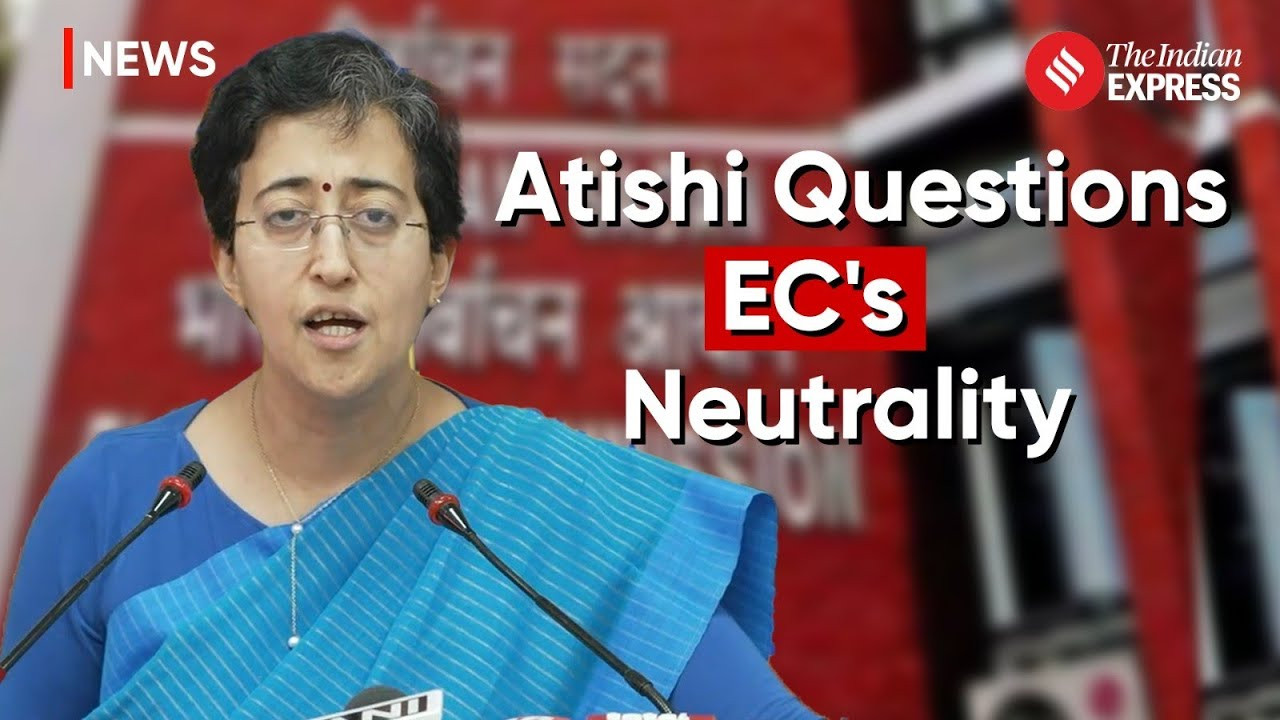Congress MP Levels Serious Allegations Against Election Commission
Congress MP Kishori Lal Sharma has launched a scathing attack on the Election Commission of India (ECI), accusing the constitutional body of partisan behavior and failing to uphold its mandate of conducting free and fair elections. Sharma's comments, made to the media following a District Vigilance and Monitoring Committee meeting in Amethi, Uttar Pradesh, have ignited a fierce debate about the ECI's neutrality and its role in ensuring democratic processes. The gravity of his accusations underscores a growing concern among some segments of the political spectrum regarding the impartiality of election management in the country.
Accusations of Bias and Failure to Uphold Responsibilities
Sharma's statement directly accused the ECI of favoring a particular political party, asserting that it is not discharging its responsibilities properly. He linked recent instances of election-related violence to what he describes as the ECI's failures, stating, “It is the responsibility of the Election Commission to conduct elections peacefully and fairly, but this is not happening in the country. The news of violence in today’s election is also the result of its failure.” This strong condemnation raises significant questions about the ECI's ability to maintain its image of neutrality and the public's trust in the fairness of elections.
The Impact of Sharma's Claims
Sharma's allegations are not merely isolated criticisms; they tap into broader concerns regarding the political neutrality of institutions and the fairness of electoral processes in India. His statements have the potential to erode public confidence in the integrity of future elections and raise critical questions regarding the ECI's accountability. The ensuing discussions highlight the ongoing challenges in maintaining impartiality in an increasingly polarized political climate. The implications of such accusations extend far beyond the immediate political context, impacting the perception of democracy and fair governance.
Calls for Transparency and Accountability
While the Congress MP's accusations are serious and demand a thorough response from the Election Commission, it's crucial to maintain a balanced perspective. The ECI has, historically, played a significant role in safeguarding the integrity of India's democratic processes. However, the very nature of Sharma's claims demands a comprehensive investigation and a robust response. This isn't merely about one party's viewpoint; it's about the broader implications for democratic values and ensuring the credibility of election outcomes. Open dialogue and investigations into these allegations are essential for strengthening the institution and preserving public trust.
The need for transparency and accountability in the functioning of the ECI is paramount. Mechanisms for addressing complaints and ensuring the impartiality of election officials are integral to upholding the democratic ethos of a nation. Independent oversight and rigorous processes for addressing allegations of bias are essential to safeguarding the electoral process and maintaining public faith in democratic institutions. The importance of investigating these claims fairly and thoroughly cannot be overstated. Such investigations must be transparent and impartial to ensure their credibility and maintain public confidence in the process.
The Path Forward: Strengthening Democratic Institutions
Moving forward, strengthening the mechanisms for independent oversight of the Election Commission is crucial. This would involve establishing clear and transparent guidelines for handling complaints, ensuring that allegations of bias are thoroughly investigated and addressed promptly and fairly. Independent monitoring bodies could play a vital role in assessing the impartiality of the election process, thereby strengthening the public's trust in democratic institutions. Ultimately, protecting the credibility of the electoral process, and fostering trust in democratic institutions, requires a commitment to transparency, accountability, and independent oversight. This commitment is essential for safeguarding democratic values and ensuring public confidence in the fairness of elections.
The concerns raised by Sharma underscore the ongoing challenge of maintaining an impartial electoral process in a complex and often fiercely contested political environment. The discussion regarding these allegations must continue to ensure a free and fair electoral landscape. Addressing these challenges requires a comprehensive approach involving all stakeholders, including political parties, election officials, and civil society organizations.
The integrity of the Election Commission is vital for a healthy democracy. The future of free and fair elections in India depends on these institutions being accountable and capable of conducting fair elections. We need to work together, regardless of political affiliation, to ensure a system that inspires confidence in the fairness of elections. The health of our democracy depends on it. This is not a partisan issue but a fundamental aspect of our commitment to democratic principles. Continued scrutiny and commitment to transparency are critical steps in upholding this commitment.

















